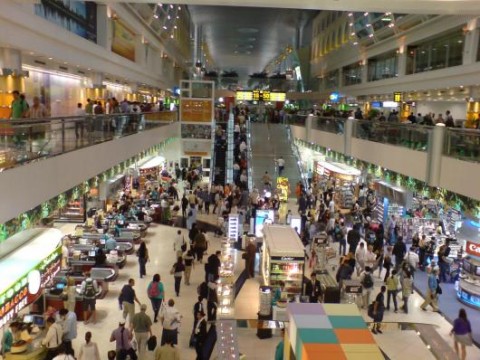
Dubai, Jan 28: Emirates passengers could be next in line to avail of the American pre-clearance customs procedures in the UAE following the opening of a post in Abu Dhabi last week.
Passengers began using the region’s first United States pre-clearance customs checkpoint at Abu Dhabi International on January 24. The post, manned by US customs officials, enables passengers to skip long queues on arrival in the US by clearing them for immigration prior to departing from Abu Dhabi.
“Dubai International is well-positioned to be the next port of call for US pre-clearance with three airlines, Emirates, United and Delta, soon operating services to a total of nine destinations in the United States,” an Emirates spokesperson told Gulf News in an e-mail.
A Dubai Airports spokesperson echoed that view in a separate statement.
The Abu Dhabi pre-clearance post is expected to alleviate congestion at key US airports by cutting passenger immigration processing time prior to their arrival.
Opposition
However, John Strickland, director at UK-based aviation advisory JLS Consulting, told Gulf News that the pre-clearance posts have been met with opposition by US carriers who claim it gives foreign airlines an unfair advantage.
Etihad is the only airline currently flying direct between the US and Abu Dhabi. It flies to New York, Washington DC and Chicago, and later this year will begin services to Los Angeles and Dallas.
An Etihad spokesperson told Gulf News in an e-mail that passengers travelling to Washington DC are being processed through the new immigration pre-clearance facility. Passengers on other US-bound Etihad flights are expected to be processed through the new facility in the coming days.
“Etihad Airways is pleased to support this initiative between the Governments of Abu Dhabi and the US, which will benefit air travellers who can fly from Abu Dhabi and arrive in the US as domestic passengers,” the spokesperson said.
Other locations
According to the US Customs and Border Protection website, pre-clearance checkpoints are available in 15 other locations in Ireland, the Caribbean and Canada. It states that key objectives of the checkpoints is to prevent security threats, intercept inadmissible persons and goods, protect US agriculture, facilitate entry of legitimate trade and travellers, reduce congestion at US gateway airports and foster cooperation with foreign authorities.
The Abu Dhabi government is reportedly funding 85 per cent of the costs to host the checkpoint, including salaries of US officials.





Comments
Add new comment